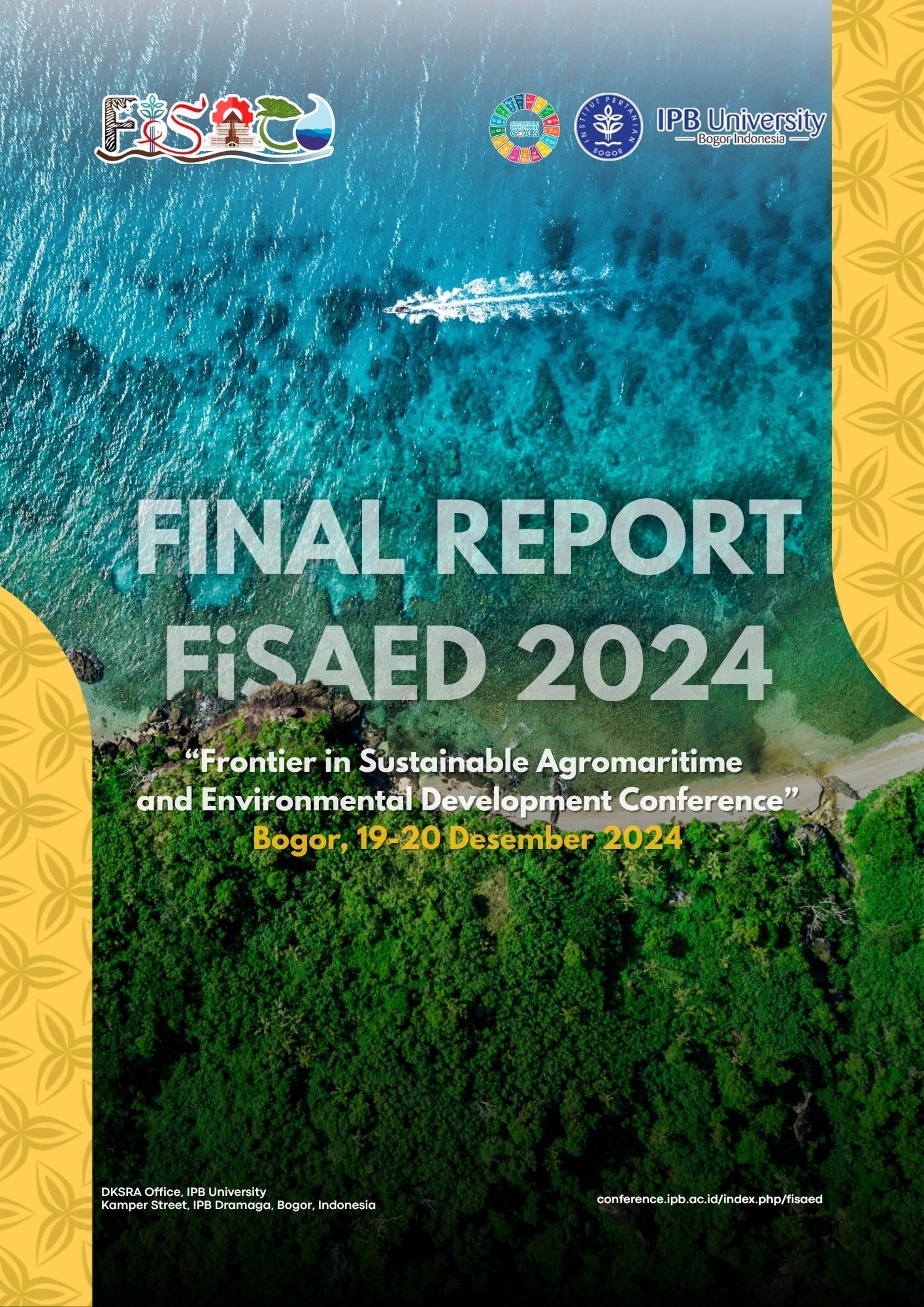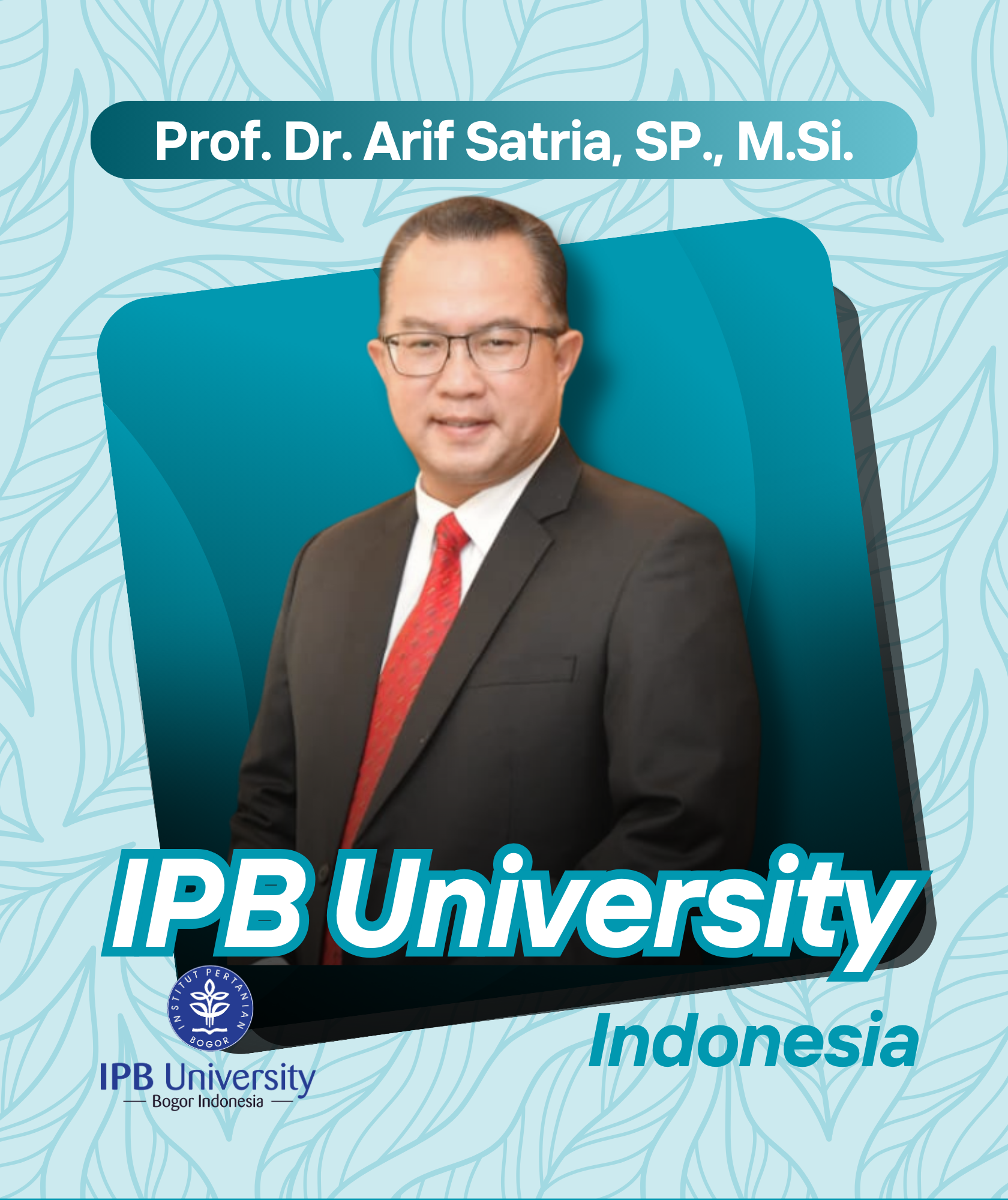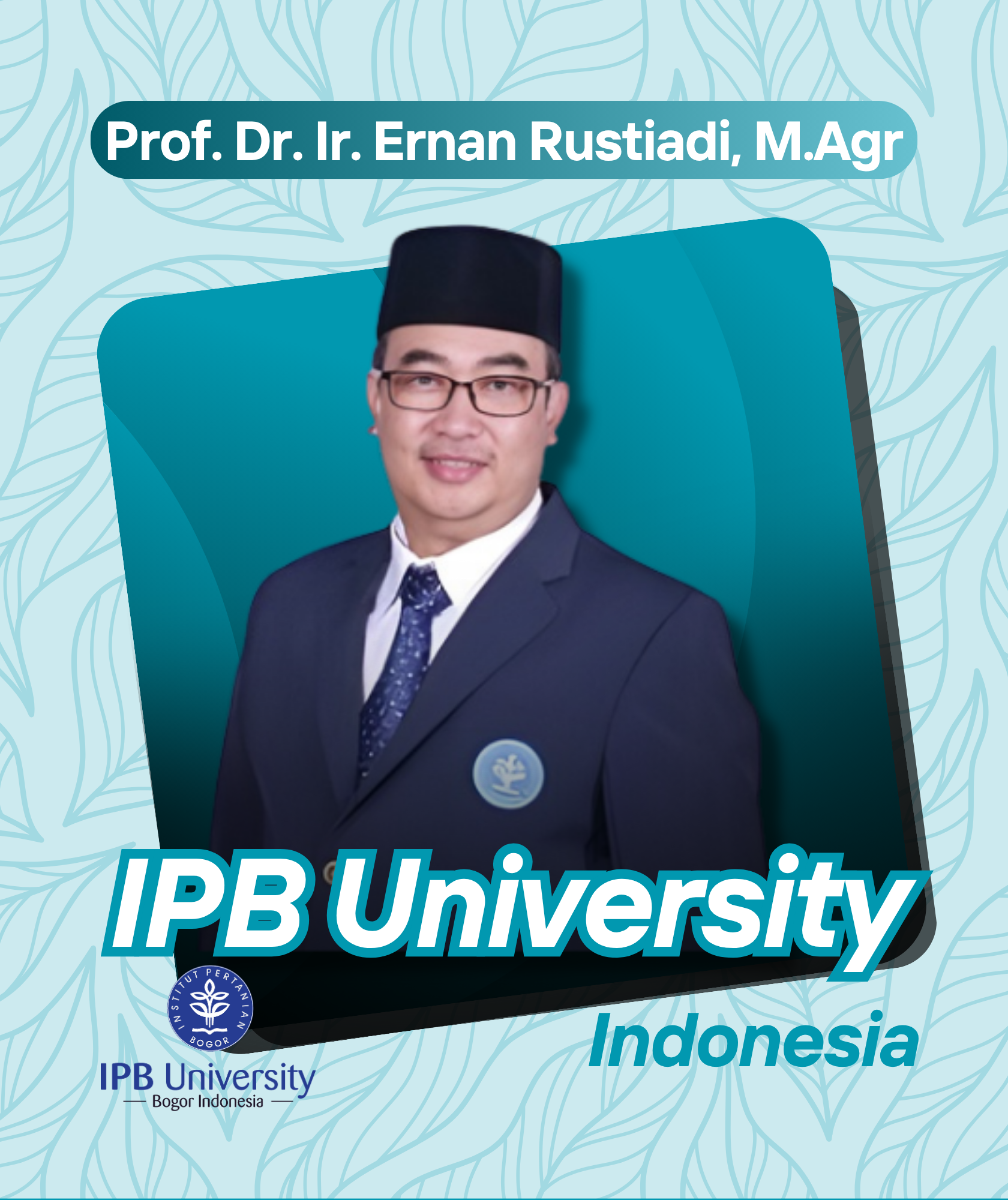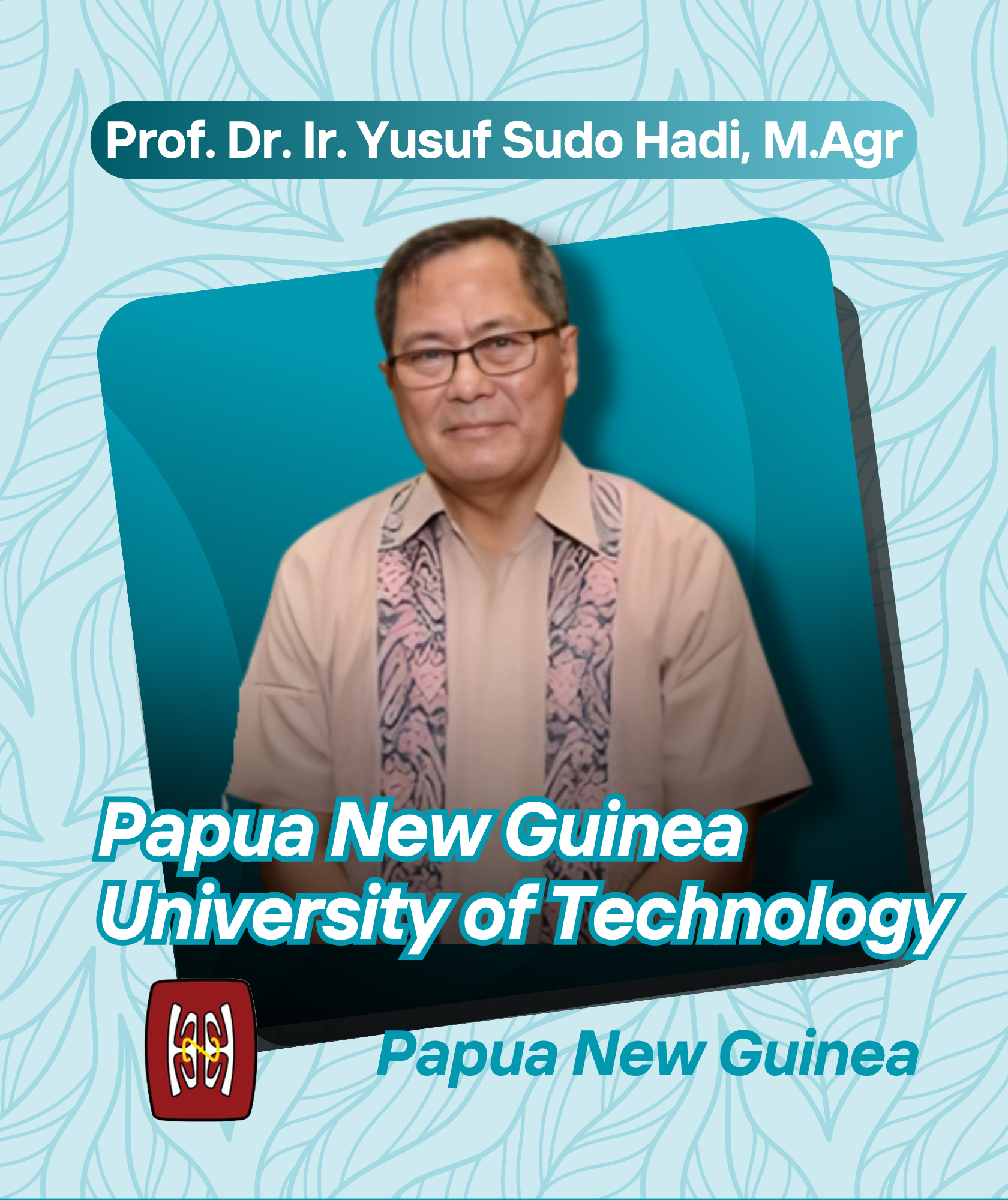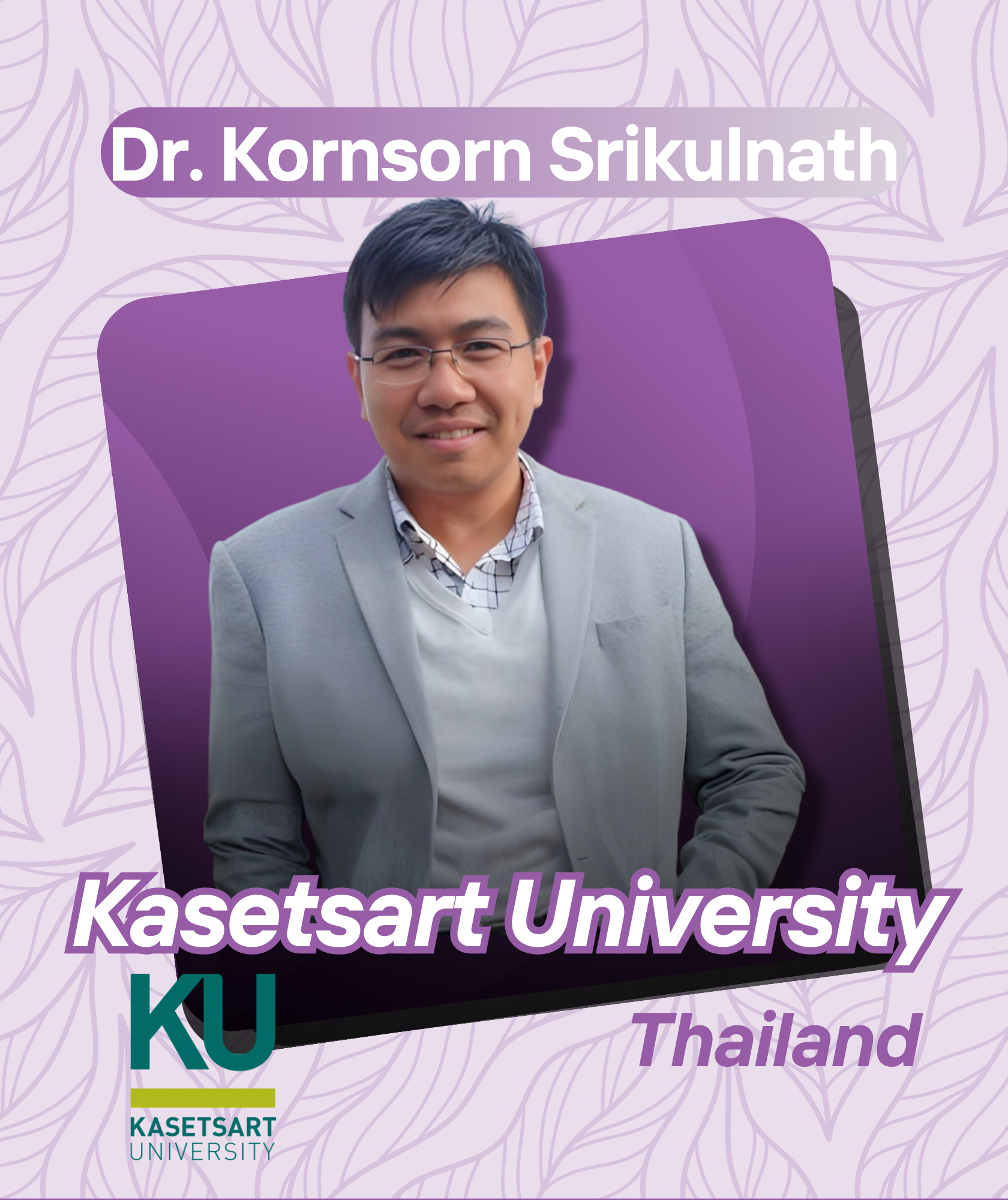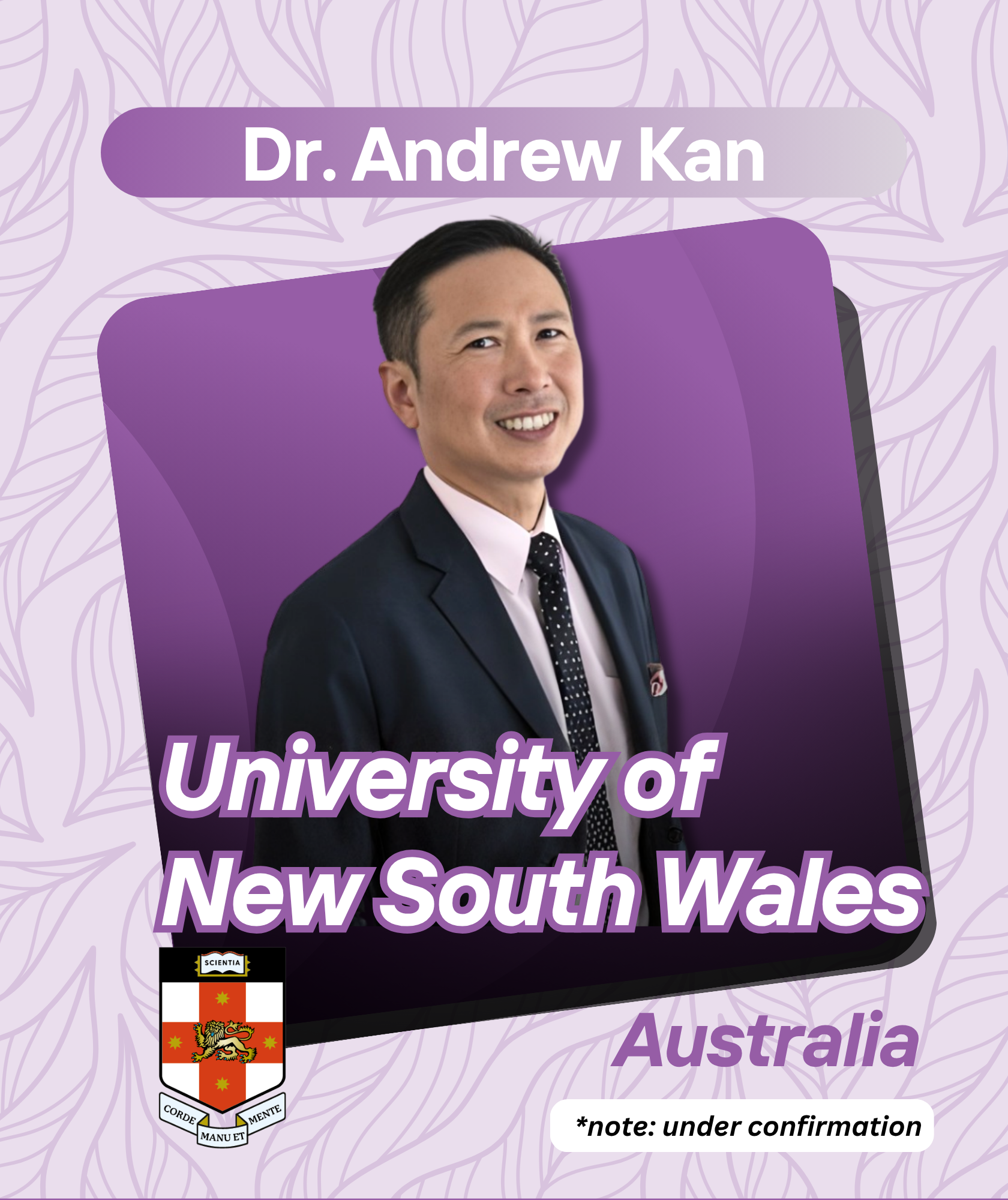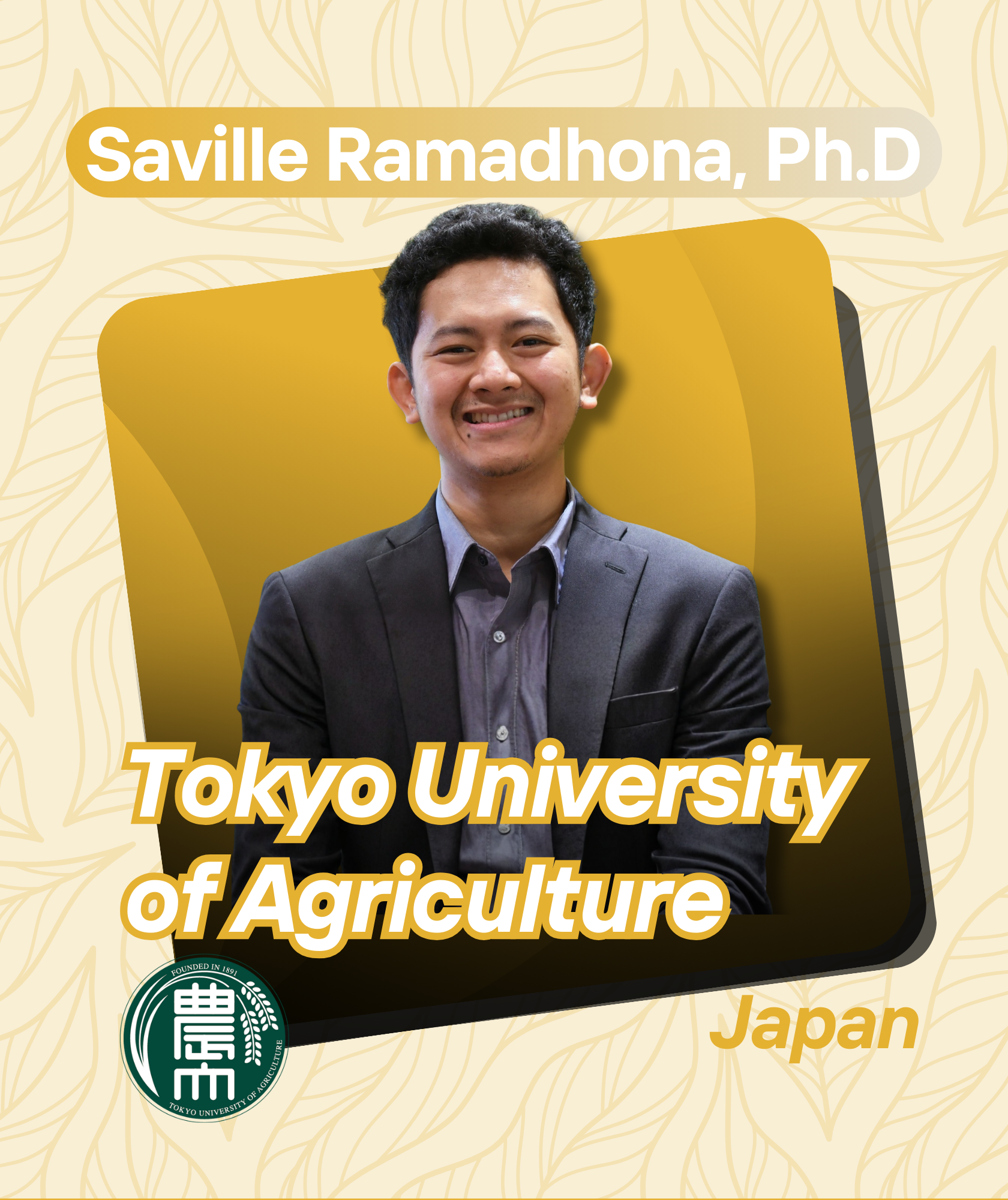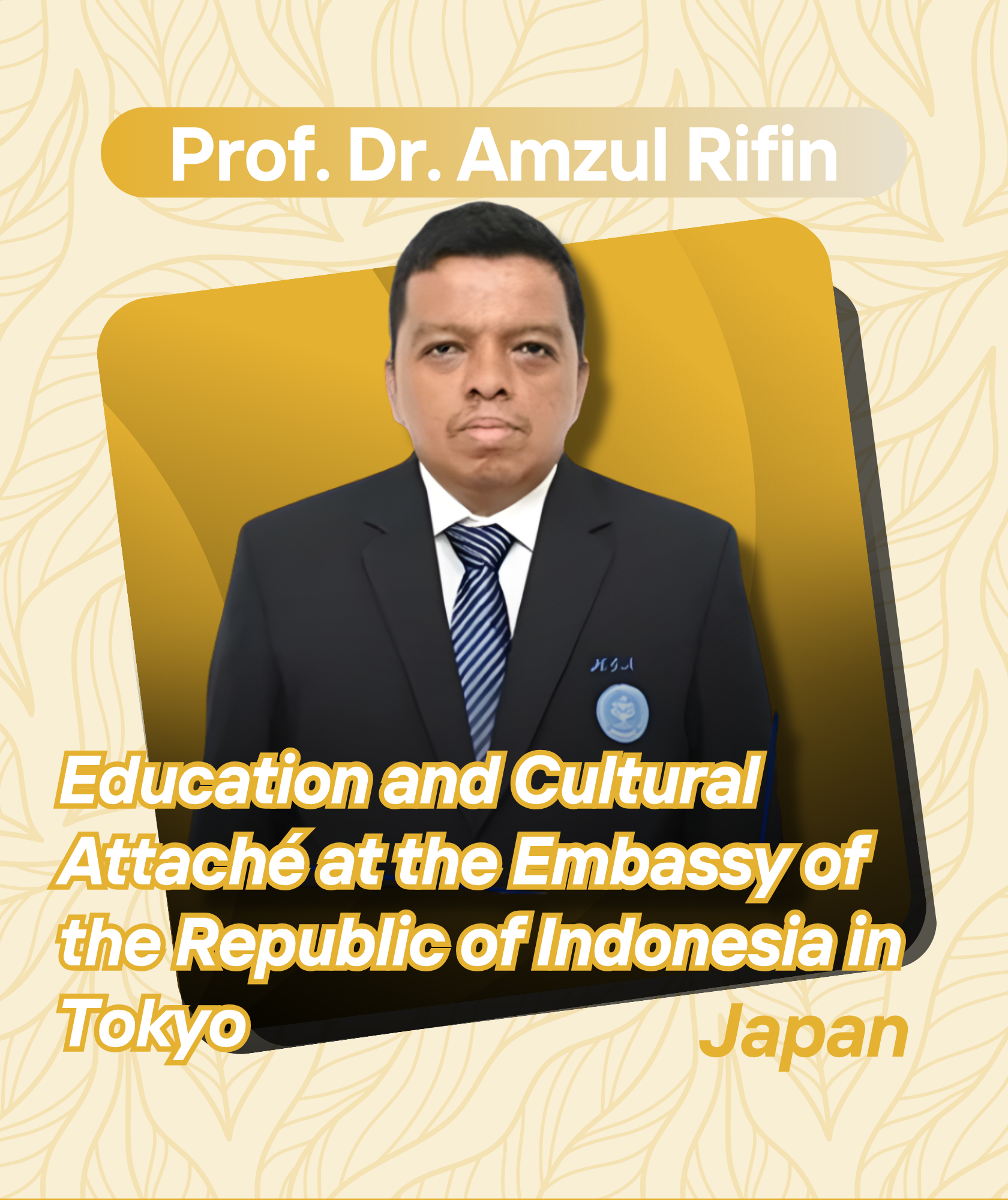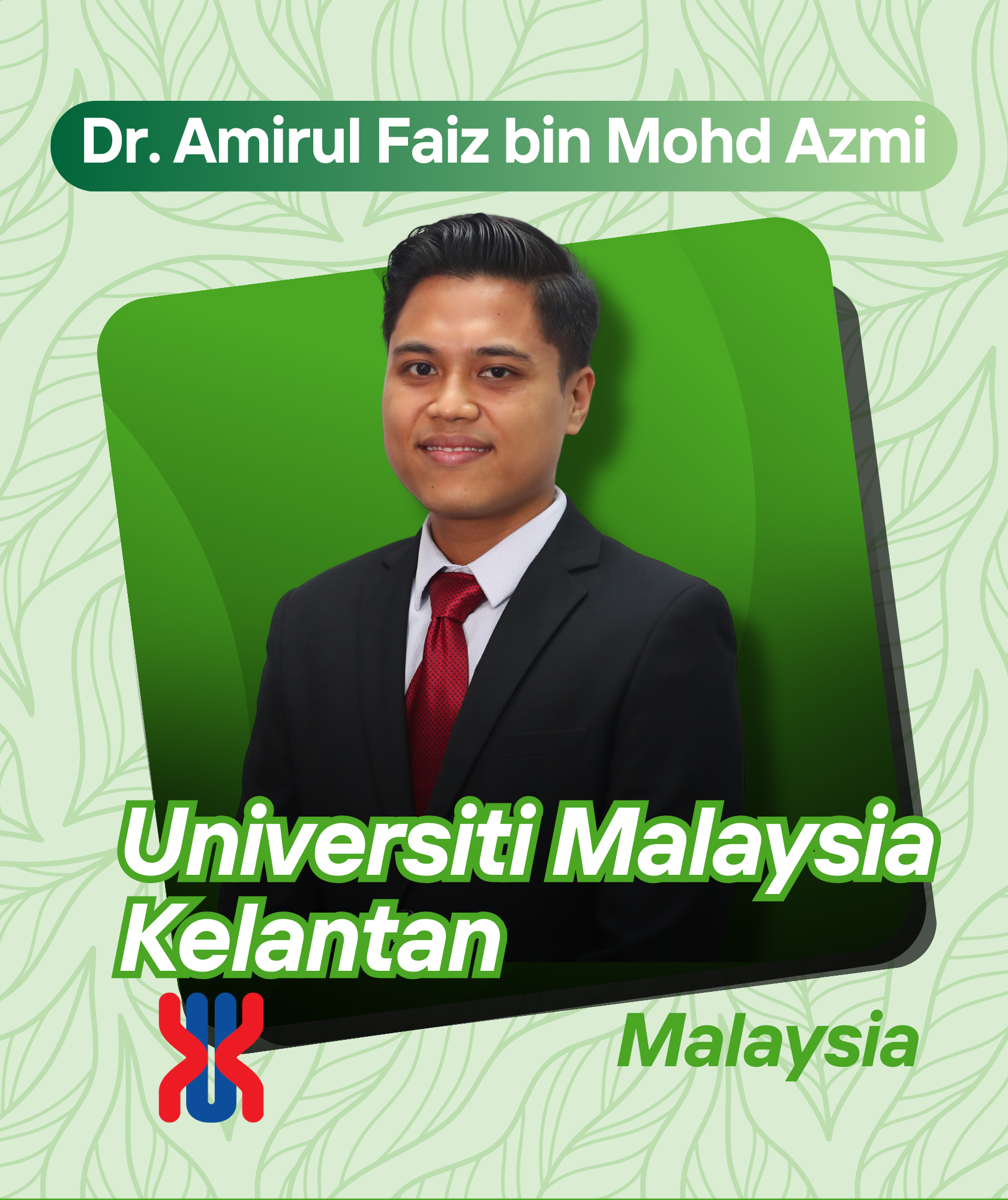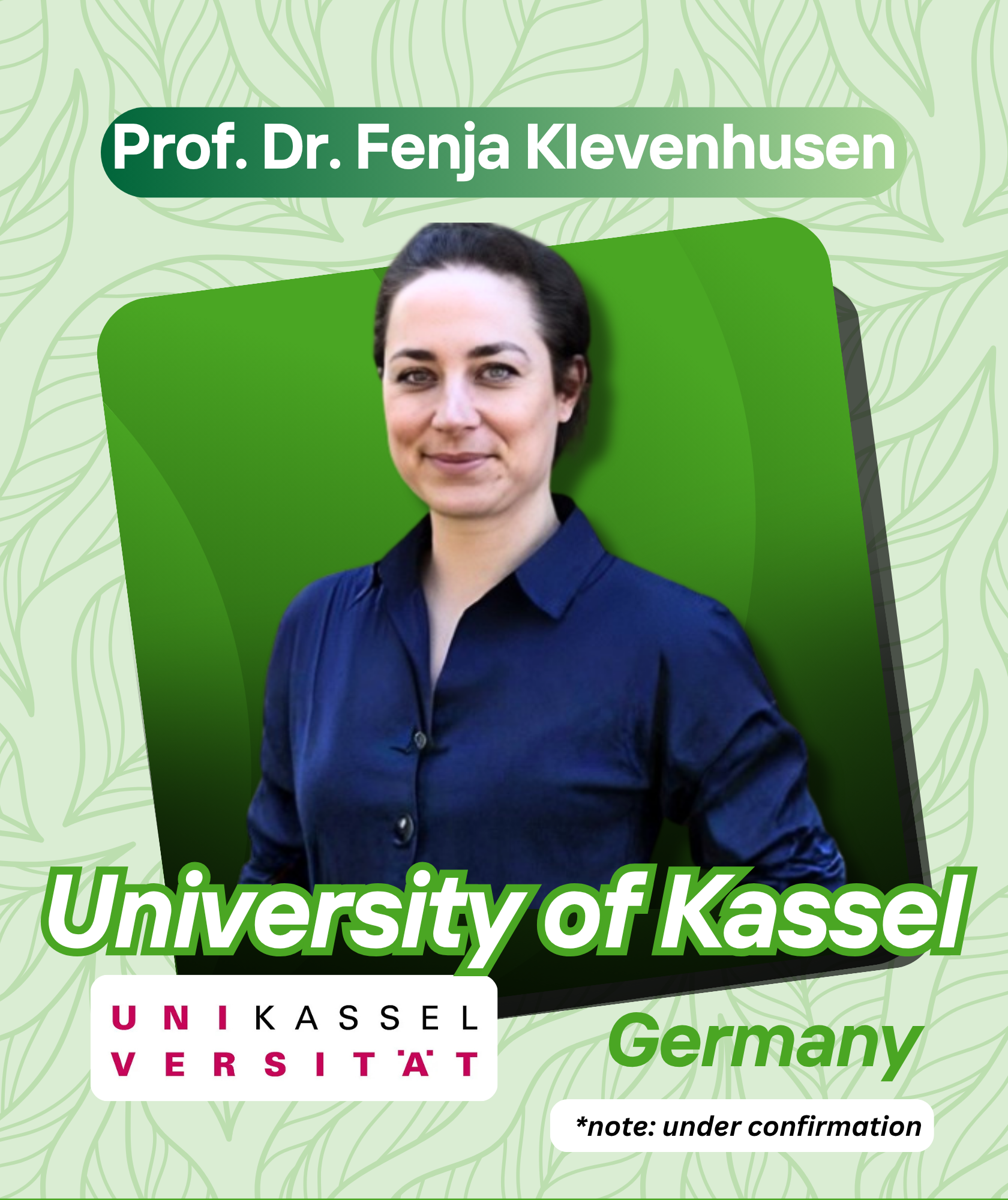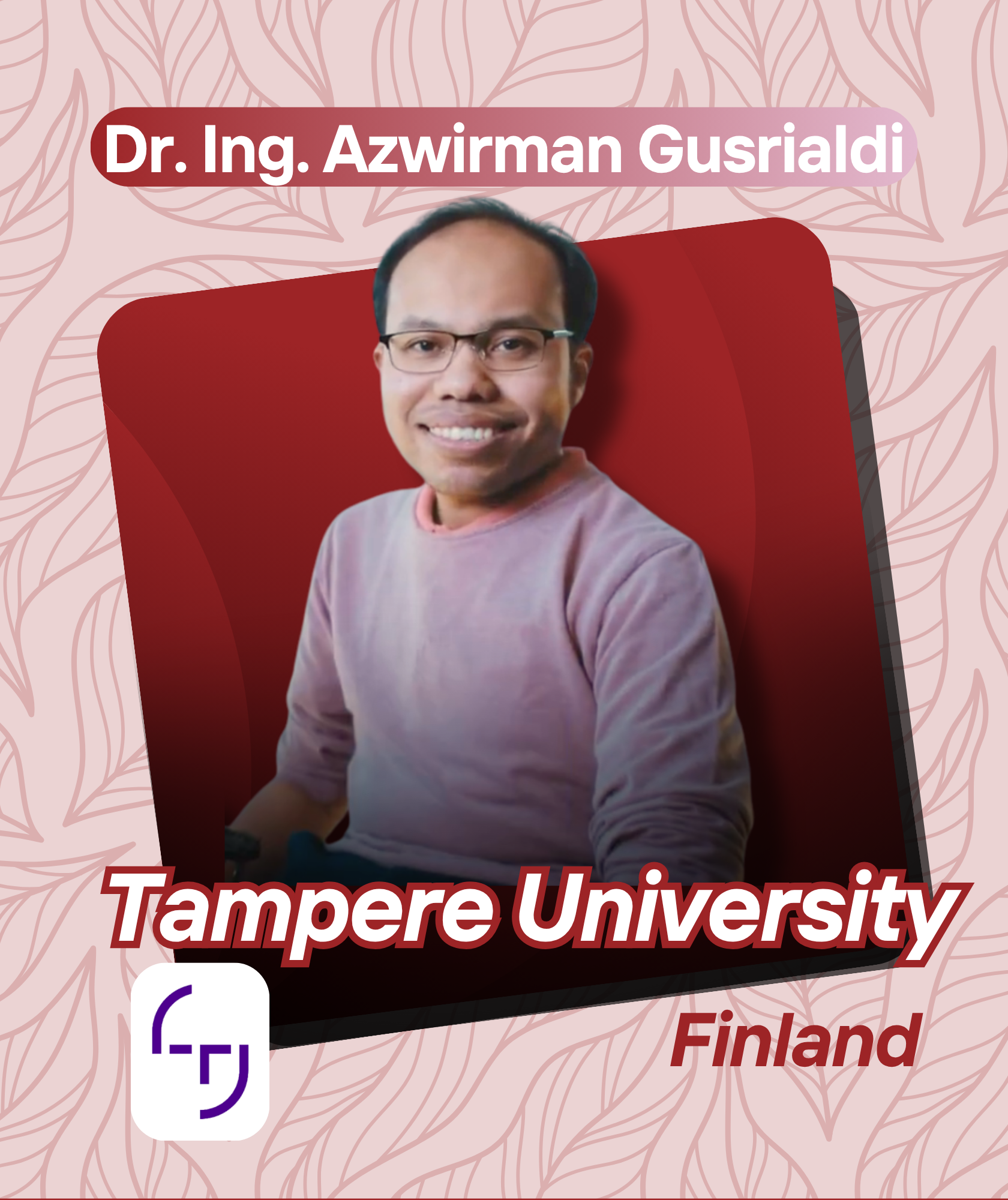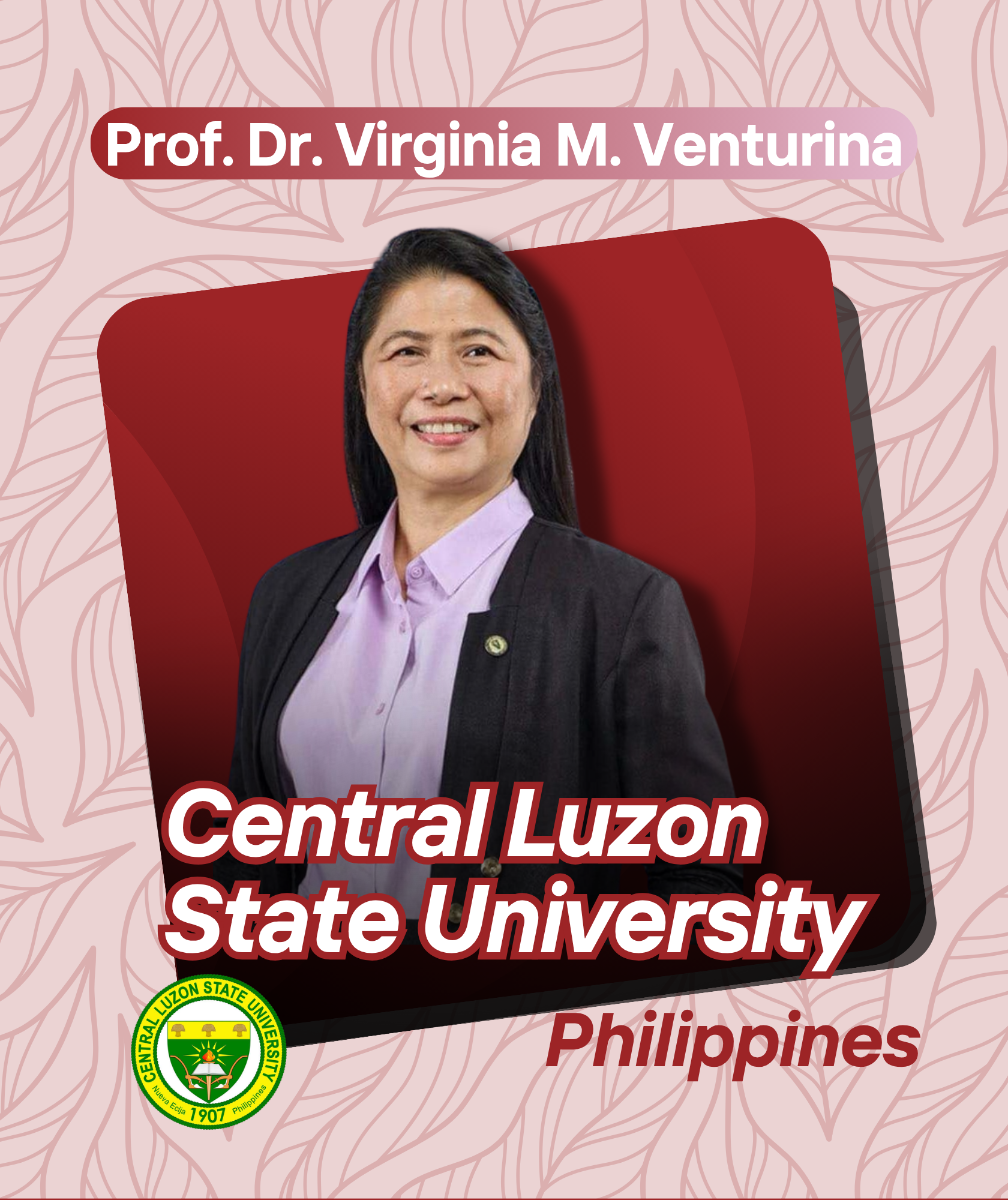Archives
-
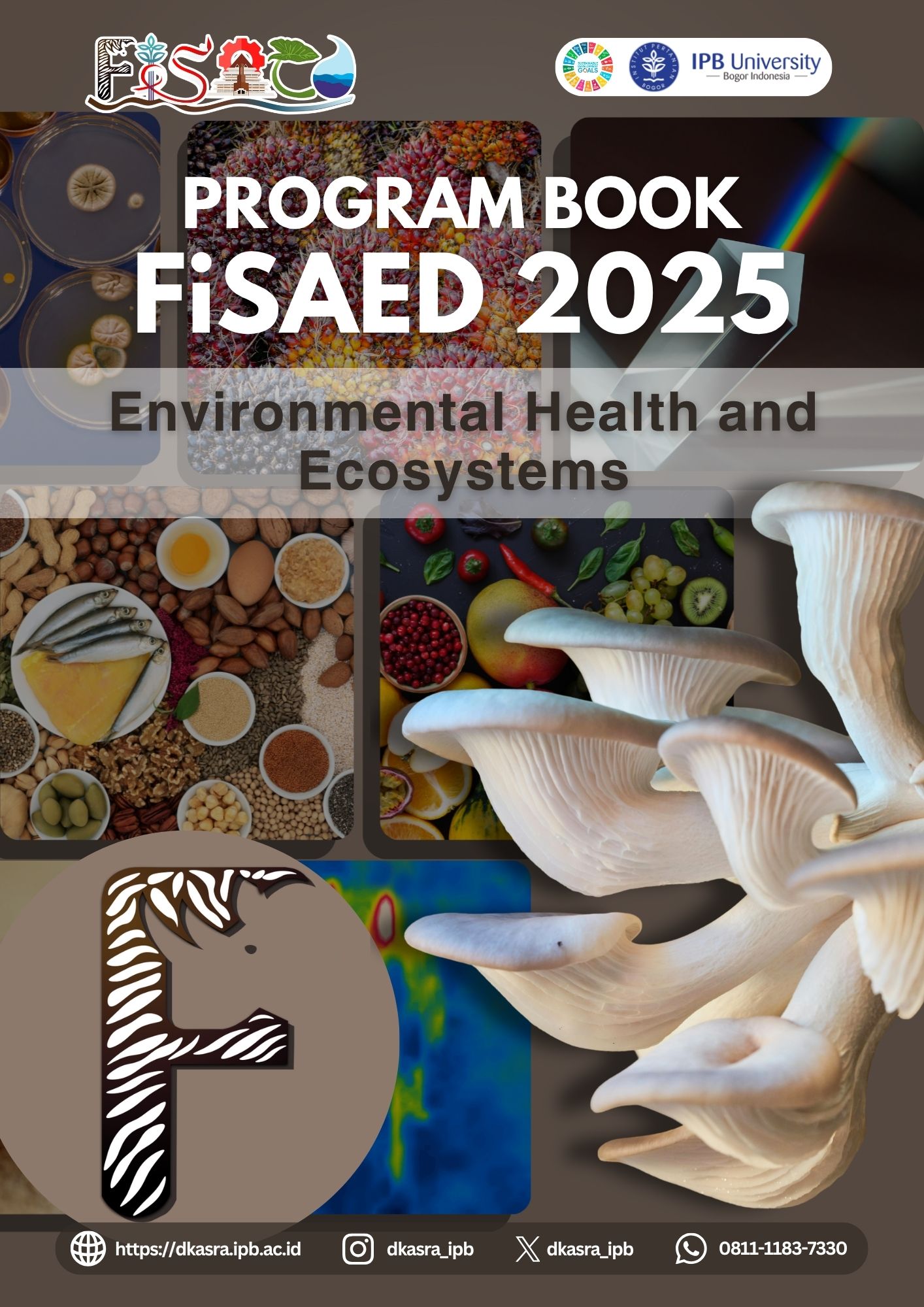
Program Book FiSAED: Environmental Health and Ecosystems
2025The Environmental Health and Ecosystems subtheme focuses on the interconnectedness between environmental quality, ecosystem integrity, and human well-being. It highlights the urgent need to protect and restore ecological systems as a foundation for sustaining public health, food security, and climate resilience. This subtheme encompasses five major focus areas: (1) Public and Environmental Health, which studies the effects of pollution, waste, and environmental degradation on human health; (2) Ecosystem Services and Biodiversity, which explores the ecological functions that support livelihoods, food production, and disease regulation; (3) Water and Air Quality Management, which develops technologies and policies to monitor and improve environmental quality; (4) One Health and Ecohealth Approaches, which integrate human, animal, and ecosystem health in addressing emerging environmental and zoonotic challenges; and (5) Sustainable Urban and Rural Environments, which promote healthy living spaces through green infrastructure, waste reduction, and community-based environmental stewardship. Closely aligned with:








This emphasises the necessity for collaborative, multidisciplinary approaches to mitigate environmental hazards and preserve the delicate equilibrium that supports health across species and ecosystems.

This work is licensed under a Creative Common Attribution-Author 4.0 International License.
This license enables reusers to distribute, remix, adapt, and build upon the material in any medium or format, so long as attribution is given to the creator. The license allows for commercial use.
-
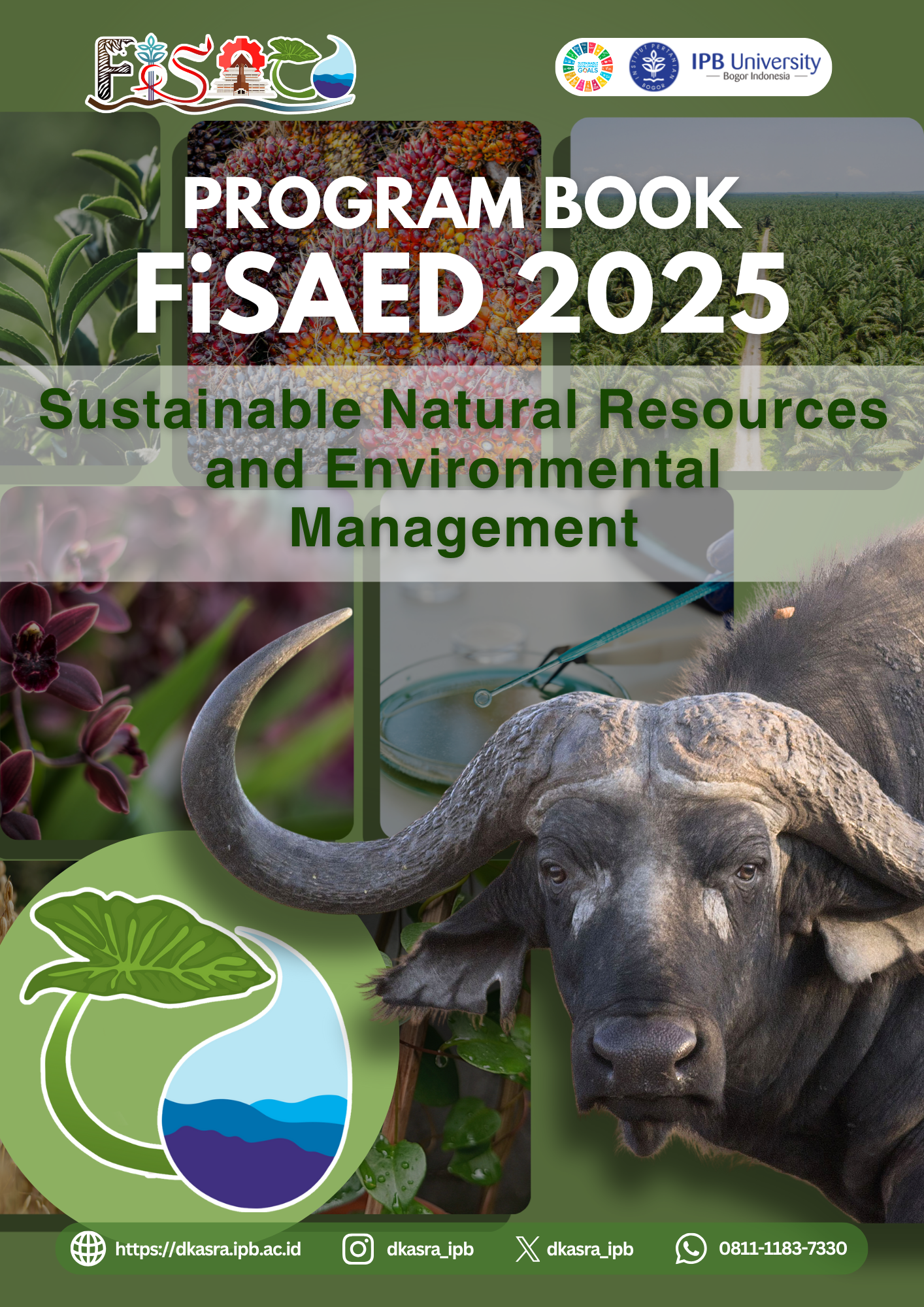
Program Book FiSAED: Sustainable Natural Resources and Environmental Management
2025The Sustainable Natural Resources and Environmental Management subtheme emphasizes the importance of conserving, restoring, and managing natural ecosystems to ensure long-term ecological balance and resource availability for future generations. This subtheme focuses on integrating environmental science, policy, and community-based management approaches to achieve harmony between human activities and nature. It encompasses five key focus areas: (1) Forestry and Land Management, which focuses on sustainable forest utilization, land rehabilitation, and biodiversity conservation; (2) Aquatic and Marine Resource Management, which promotes sustainable fisheries, aquaculture practices, and coastal ecosystem protection; (3) Environmental Science and Conservation, which investigates ecosystem dynamics, pollution control, and strategies for ecosystem restoration; (4) Climate Change Adaptation and Mitigation, which develops models and practices to reduce environmental risks and enhance resilience against climate variability; and (5) Environmental Policy and Governance, which formulates integrated management frameworks and regulatory instruments to promote sustainable use of natural resources. This subtheme aligns strongly with:








This highlights the significance of cross-disciplinary collaboration in promoting sustainable management practices to protect natural resources for future generations.

This work is licensed under a Creative Common Attribution-Author 4.0 International License.
This license enables reusers to distribute, remix, adapt, and build upon the material in any medium or format, so long as attribution is given to the creator. The license allows for commercial use.
-
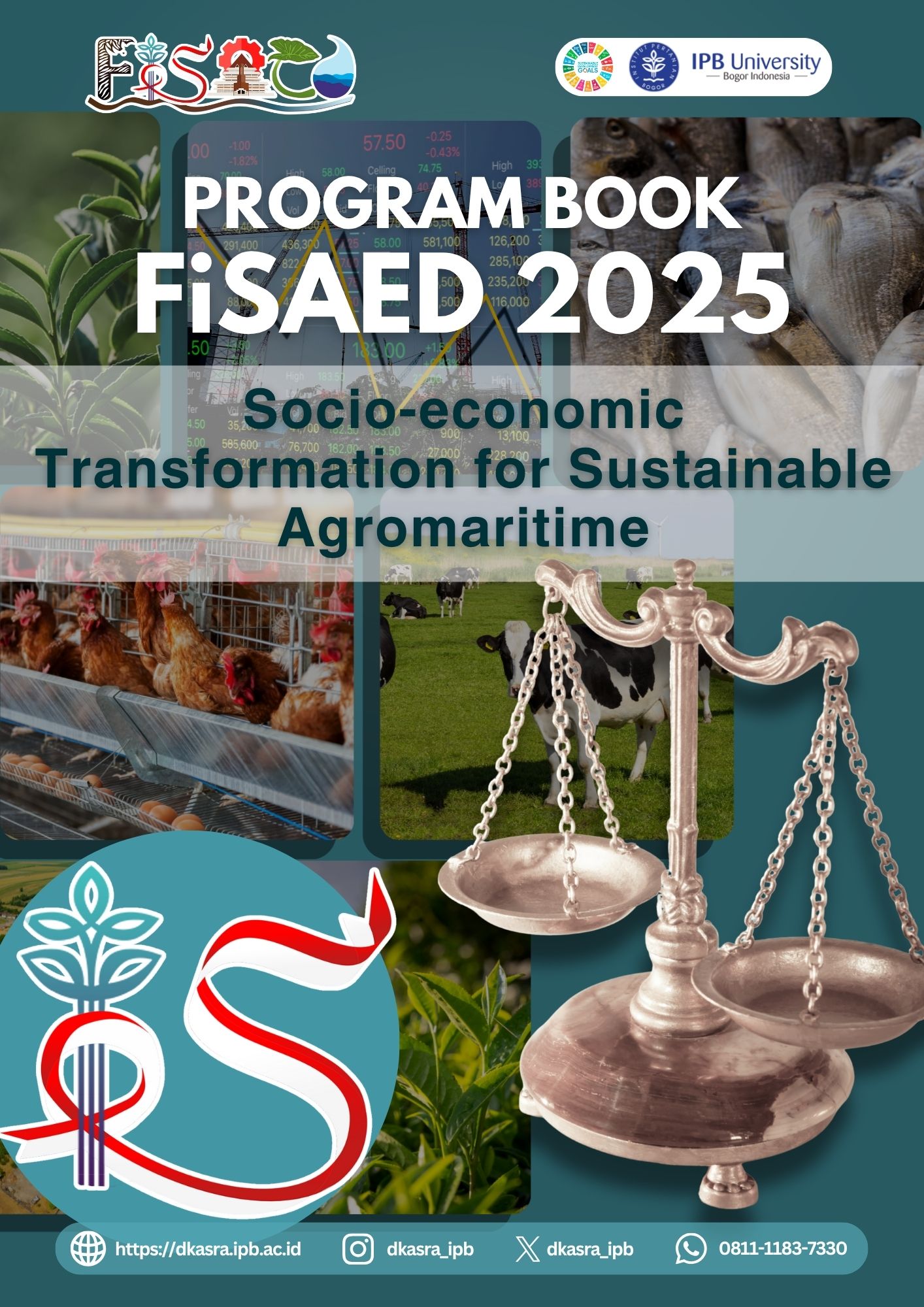
Program Book FiSAED: Socio-economic Transformation for Sustainable Agromaritime
2025The Socio-Economic Transformation for Sustainable Agromaritime subtheme highlights the essential role of social innovation, inclusive economic development, and community empowerment in driving sustainability within agricultural and maritime sectors. This subtheme focuses on integrating socio-economic perspectives into agromaritime systems to ensure that progress in technology and production is accompanied by equitable growth, cultural resilience, and social well-being. It encompasses five key focus areas: (1) Agribusiness and Agricultural Economics, which explore strategies for strengthening market access, value chains, and entrepreneurship among farmers and fishers; (2) Communication and Community Development, which promotes participatory approaches and knowledge co-creation to enhance community engagement and social inclusion; (3) Sociology and Rural Studies, which examine the dynamics of rural transformation, migration, and adaptive livelihoods in the context of climate and market changes; (4) Public Policy and Governance, which focuses on formulating evidence-based policies that support sustainable resource management and equitable economic distribution; and (5) Education and Human Resource Development, which fosters capacity building and leadership for sustainable agromaritime innovation. This subtheme is closely aligned with SDGs:










This underscores the necessity for collaborative socioeconomic strategies to support agromaritime sustainability and empower communities.

This work is licensed under a Creative Common Attribution-Author 4.0 International License.
This license enables reusers to distribute, remix, adapt, and build upon the material in any medium or format, so long as attribution is given to the creator. The license allows for commercial use.
-
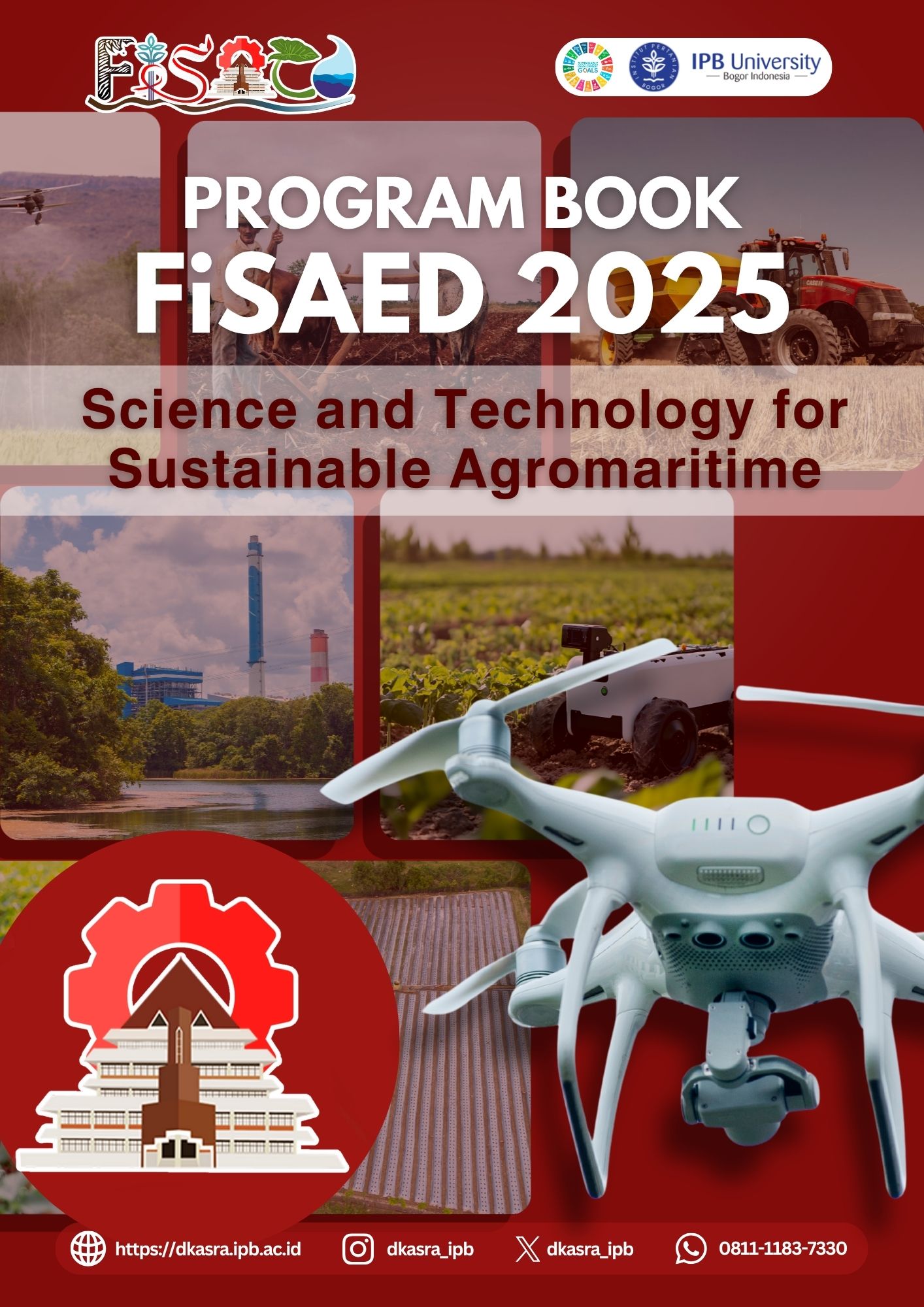
Program Book FiSAED: Science and Technology for Sustainable Agromaritime
2025The Science and Technology for Sustainable Agromaritime subtheme emphasizes the pivotal role of scientific research and technological innovation in advancing sustainable practices within agricultural and maritime sectors. This subtheme aims to strengthen the integration of cutting-edge technologies with local wisdom to create adaptive and resilient agromaritime systems. It encompasses five key focus areas: (1) Mechanical and Biosystem Engineering, which applies engineering principles to design efficient, sustainable, and climate-smart agricultural and aquaculture systems; (2) Food Science and Technology, which promotes innovations in food processing, preservation, and safety to reduce waste and enhance nutritional value; (3) Agroindustrial Technology, which develops sustainable and circular production processes that add value to agromaritime commodities; (4) Civil and Environmental Engineering, which advances eco-friendly infrastructure and water-resource management to support coastal and agricultural resilience; and (5) Mathematics and Natural Sciences, which provide analytical, modeling, and computational tools to better understand complex agromaritime interactions. This subtheme aligns closely with several Sustainable Development Goals:








It emphasises the necessity of interdisciplinary collaboration and cutting-edge technology to drive sustainable development within the agromaritime sector.

This work is licensed under a Creative Common Attribution-Author 4.0 International License.
This license enables reusers to distribute, remix, adapt, and build upon the material in any medium or format, so long as attribution is given to the creator. The license allows for commercial use.
-
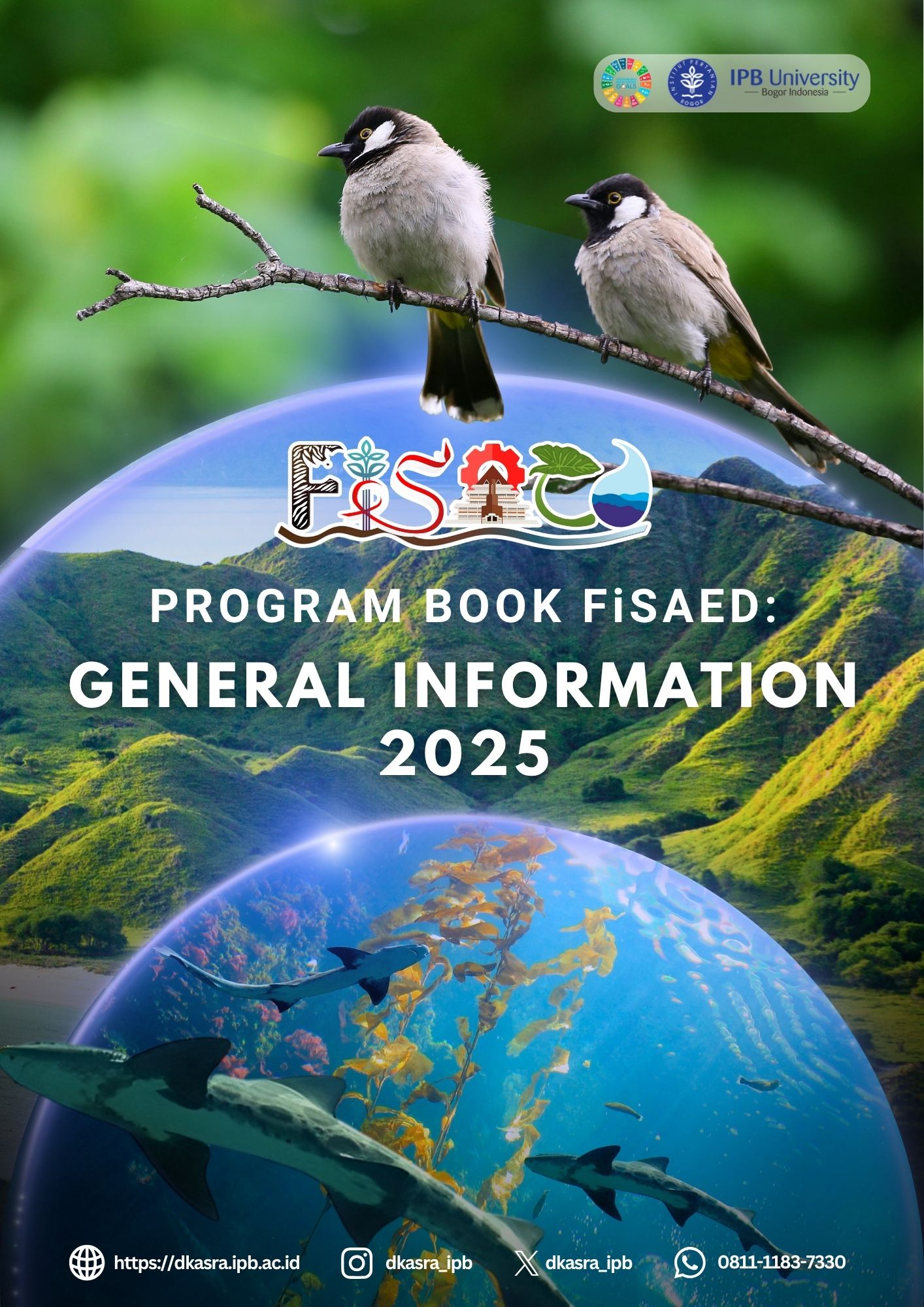
Program Book FiSAED: General Information
2025The Frontier in Sustainable Agromaritime and Environmental Development Conference (FiSAED) 2025 is being held as an international event featuring four engaging topics: Science and Technology for Sustainable Agromaritime, Socio-Economic Transformation for Sustainable Agromaritime, Sustainable Management of Natural Resources and the Environment, and Environmental Health Ecosystem and Society. FiSAED will be held on 18-19 December 2025 by IPB University in Bogor, Indonesia. IPB University is one of the tertiary institutions in Indonesia which has been established since 1963 and currently has the vision to lead in strengthening the nation's dignity through international excellent standards of higher education focusing on agriculture, marine sciences, and tropical bio-sciences." IPB University is located in the city of Bogor, Indonesia, in the western part of Java Island, which is famous as the "city of rain.”


















This work is licensed under a Creative Common Attribution-Author 4.0 International License.
This license enables reusers to distribute, remix, adapt, and build upon the material in any medium or format, so long as attribution is given to the creator. The license allows for commercial use.
-

2024 Program Book FiSAED: Environmental Health and Ecosystems
2024The Environmental Health and Ecosystem Subthemes delve into the vital links between environmental well-being and ecosystem stability, thus underscoring their essential roles in maintaining life and health. This subtheme encompasses several key areas: (1) Environmental Medicine, which examines the impact of environmental conditions on human health and disease; (2) Environmental Pollution and Hazards, which addresses the consequences of pollutants and environmental risks on ecosystems and public health; (3) Epidemiology and Tropical Diseases, which study health patterns and causes, particularly in tropical regions where environmental factors significantly influence disease; (4) Human and Animal Health, which investigates the interrelated health connections between humans and animals; and (5) Ecology, Biodiversity, and Conservation, which focus on biodiversity preservation and sustainable ecosystem management. This subtheme aligns with multiple Sustainable Development Goals, including:








This emphasises the necessity for collaborative, multidisciplinary approaches to mitigate environmental hazards and preserve the delicate equilibrium that supports health across species and ecosystems.

This work is licensed under a Creative Common Attribution-Author 4.0 International License.
This license enables reusers to distribute, remix, adapt, and build upon the material in any medium or format, so long as attribution is given to the creator. The license allows for commercial use.
-

2024 Program Book FiSAED: Sustainable Natural Resources and Environmental Management
2024The Sustainable Natural Resources and Environmental Management subtheme concentrates on the efficient utilisation, conservation, and rehabilitation of natural resources, with an emphasis on sustainability to secure long-term ecosystem vitality and output. This subtheme encompasses several key areas: (1) Soil Science and Land Resources, which investigate soil health and management for sustainable agriculture and preservation; (2) Agronomy and Horticulture, which focuses on crop production and sustainable plant cultivation methods; (3) Plant Protection, tackling the prevention and control of pests and diseases to maintain ecological equilibrium; (4) Landscape Architecture, which combines design with ecological principles to create sustainable environments; (5) Fisheries and Marine Science, committed to the sustainable stewardship of aquatic resources; (6) Animal Science, focusing on the sustainable and ethical handling of animal resources; (7) Forestry, addressing the preservation and sustainable use of woodland resources; (8) Environmental Science and Management, which encompasses strategies for the custodianship and safeguarding of natural environments; and (9) Agrometeorology and Geophysics, examining climate and environmental factors that influence agriculture and ecosystems. This subtheme aligns with:








This highlights the significance of cross-disciplinary collaboration in promoting sustainable management practices to protect natural resources for future generations.

This work is licensed under a Creative Common Attribution-Author 4.0 International License.
This license enables reusers to distribute, remix, adapt, and build upon the material in any medium or format, so long as attribution is given to the creator. The license allows for commercial use.
-

2024 Program Book FiSAED: Socio-economic Transformation for Sustainable Agromaritime
2024The Socio-economic Transformation for Sustainable Agromaritime subtheme explores the societal and economic changes required to implement sustainable practices in agricultural and maritime industries. This subtheme encompasses five primary areas: (1) Agribusiness and Management, which investigates sustainable business approaches and management techniques to boost agricultural efficiency and resilience; (2) Agricultural Economics and Development, which examines economic policies and innovations that promote sustainable agricultural growth and community well-being; (3) Resource and Environmental Economics, which studies the optimal utilisation of natural resources and environmental sustainability in agricultural and maritime sectors; (4) Family and Consumer Sciences, which investigates the welfare of families and communities in relation to food security, nutrition, and sustainable consumption habits; and (5) Communication and Community Development, which emphasises the importance of effective communication, education, and community involvement in fostering sustainable practices. This subtheme aligns with several Sustainable Development Goals:










This underscores the necessity for collaborative socioeconomic strategies to support agromaritime sustainability and empower communities.

This work is licensed under a Creative Common Attribution-Author 4.0 International License.
This license enables reusers to distribute, remix, adapt, and build upon the material in any medium or format, so long as attribution is given to the creator. The license allows for commercial use.
-

2024 Program Book FiSAED: Science and Technology for Sustainable Agromaritime
2024The Science and Technology for Sustainable Agromaritime subtheme underscores the critical importance of scientific advancements and technological innovations in fostering sustainable practices within agricultural and maritime domains. This subtheme encompasses five key areas: (1) Mechanical and Biosystem Engineering, which applies engineering principles to enhance agricultural machinery and systems, improving efficiency and sustainability; (2) Food Science and Technology, which explores novel approaches to food preservation, safety, and quality, aiming to reduce waste and enhance nutrition; (3) Agroindustrial Technology, which investigates technological solutions for the sustainable and efficient processing of agricultural products; (4) Civil and Environmental Engineering, which addresses infrastructure development and environmental protection to support sustainable agricultural and maritime practices; and (5) Mathematics and Natural Sciences, which provide the necessary analytical tools and theoretical frameworks for understanding complex agromaritime systems. This subtheme is closely aligned with several Sustainable Development Goals:








It emphasises the necessity of interdisciplinary collaboration and cutting-edge technology to drive sustainable development within the agromaritime sector.

This work is licensed under a Creative Common Attribution-Author 4.0 International License.
This license enables reusers to distribute, remix, adapt, and build upon the material in any medium or format, so long as attribution is given to the creator. The license allows for commercial use.
-

2024 Program Book FiSAED: General Information
2024The Frontier in Sustainable Agromaritime and Environmental Development Conference (FiSAED) 2024 was held in the international community with four interesting topics: Science and Technology for Sustainable Agromaritime, Socio-Economic Transformation for Sustainable Agromaritime, Sustainable Management of Natural Resources and the Environment, and Environmental Health Ecosystem and Society. FiSAED will be held on 19-20 December 2024 by IPB University in Bogor, Indonesia. IPB University is one of the tertiary institutions in Indonesia which has been established since 1963 and currently has the vision to lead in strengthening the nation's dignity through international excellent standards of higher education focusing on agriculture, marine sciences, and tropical bio-sciences." IPB University is located in the city of Bogor, Indonesia, in the western part of Java Island, which is famous as the "city of rain.”


















This work is licensed under a Creative Common Attribution-Author 4.0 International License.
This license enables reusers to distribute, remix, adapt, and build upon the material in any medium or format, so long as attribution is given to the creator. The license allows for commercial use.
-

2023 Program Book FiSAED: Science and Technology for Sustainable Agromaritime
2023Sustainable agromaritime practices involve the integration of science and technology to ensure the long-term viability of agricultural and maritime activities while minimizing their negative impacts on the environment. Here are some key areas where science and technology play a crucial role in achieving sustainability in agromaritime: (1) Mechanical and Biosystem Engineering; (2) Food Science and Technology; (3) Agroindustrial Technology; (4) Civil and Environmental Engineering; and (5) Mathematics and Natural Sciences. By continually advancing these fields, we can better address the environmental challenges and resource management issues associated with agriculture and maritime activities.

This work is licensed under a Creative Common Attribution-Author 4.0 International License.
This license enables reusers to distribute, remix, adapt, and build upon the material in any medium or format, so long as attribution is given to the creator. The license allows for commercial use.
-

2023 Program Book FiSAED: Socio-economic Transformation for Sustainable Agromaritime
2023Socio-economic transformation for sustainable agromaritime development involves reshaping the economic and social aspects of communities engaged in agriculture and maritime activities to ensure long-term sustainability. The key strategies and considerations in this context are as follows: (1) Agribusiness and Management; (2) Agricultural Economics and Development; (3) Resource and Environmental Economics; (4) Family and Consumer Sciences; and (5) Communication and Community Development. Sustainable agromaritime development aims to enhance economic opportunities and improve people's welfare, while preserving natural resources.

This work is licensed under a Creative Common Attribution-Author 4.0 International License.
This license enables reusers to distribute, remix, adapt, and build upon the material in any medium or format, so long as attribution is given to the creator. The license allows for commercial use.
-

2023 Program Book FiSAED: Sustainable Natural Resources and Environmental Management
2023Sustainable natural resources and environmental management aim to ensure the responsible and balanced use of natural resources, while minimizing environmental degradation and preserving ecosystem health. The key principles and strategies in this context are as follows: (1) Soil Science and Land Resources; (2) Agronomy and Horticulture; (3) Plant Protection; (4) Landscape Architecture; (5) Fisheries and Marine Science; (6) Animal Science; (7) Forestry; (8) Environmental Science and Management; and (9) Agrometeorology and Geophysics.

This work is licensed under a Creative Common Attribution-Author 4.0 International License.
This license enables reusers to distribute, remix, adapt, and build upon the material in any medium or format, so long as attribution is given to the creator. The license allows for commercial use.
-

2023 Program Book FiSAED: Environmental Health and Ecosystems
2023One Health is a holistic approach that recognizes the interconnectedness of human health, animal health, and environmental health within a broader social context. The key principles and strategies in this context are as follows: (1) Veterinary Medicine; (2) Human Medicine; (3) Biomedical Sciences; (4) Nutrition Sciences; and (5) One Health. One Health is a transdisciplinary approach that emphasizes the need for cooperation among human health, veterinary medicine, environmental science, and other fields to address complex global challenges related to health, ecosystems, and society.

This work is licensed under a Creative Common Attribution-Author 4.0 International License.
This license enables reusers to distribute, remix, adapt, and build upon the material in any medium or format, so long as attribution is given to the creator. The license allows for commercial use.
-

2023 Program Book FiSAED: General Information
2023The Frontier in Sustainable Agromaritime and Environmental Development Conference (FiSAED) 2023 was held in the international community with four interesting topics: Science and Technology for Sustainable Agromaritime, Socio-Economic Transformation for Sustainable Agromaritime, Sustainable Management of Natural Resources and the Environment, and One Health Ecosystem and Society. FiSAED will be held on 14-15 December 2023 by IPB University in Bogor, Indonesia. IPB University is one of the tertiary institutions in Indonesia which has been established since 1963 and currently has the vision to lead in strengthening the nation's dignity through international excellent standards of higher education focusing on agriculture, marine sciences, and tropical bio-sciences." IPB University is located in the city of Bogor, Indonesia, in the western part of Java Island, which is famous as the "city of rain.”

This work is licensed under a Creative Common Attribution-Author 4.0 International License.
This license enables reusers to distribute, remix, adapt, and build upon the material in any medium or format, so long as attribution is given to the creator. The license allows for commercial use.
